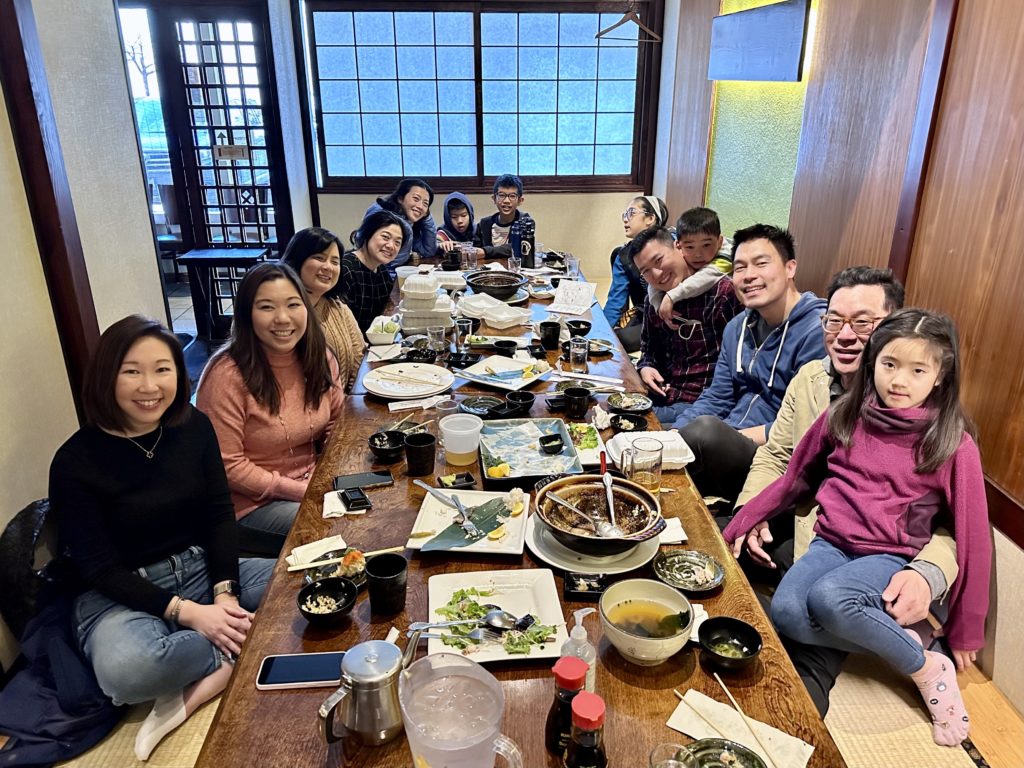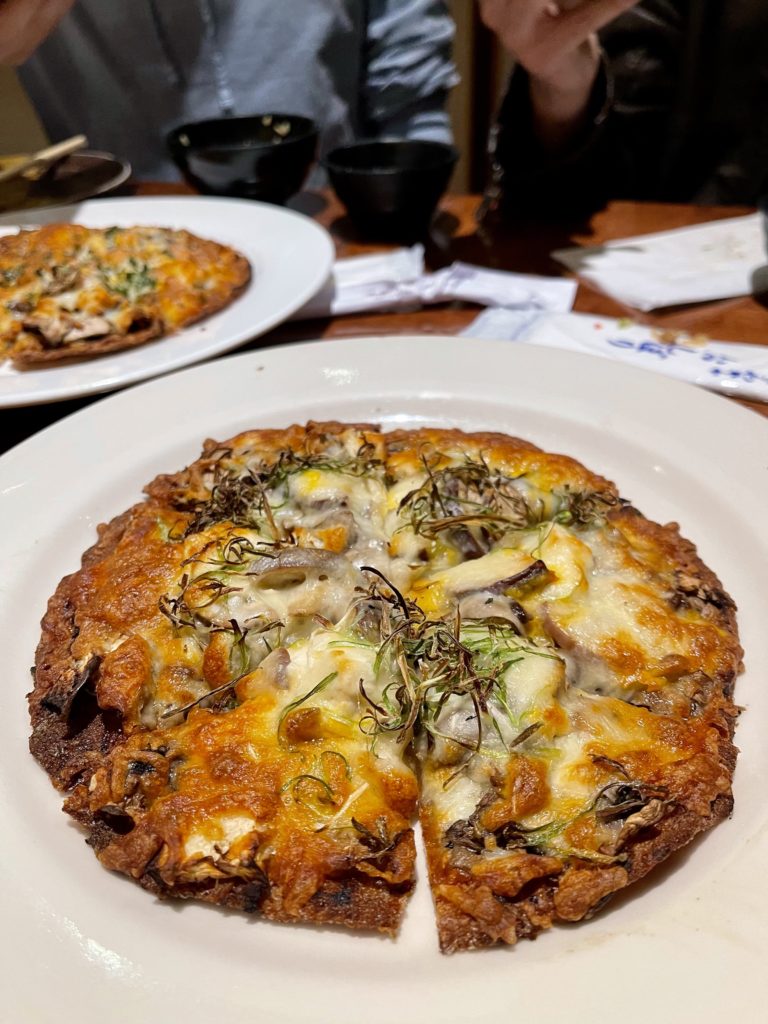To Eat or Not to Eat, part 2
“What is it?” Charlene asked.
We were at Gochi, one of my favorite restaurants, and I had ordered a couple of their famous fusion pizzas for a group birthday lunch. They had just served up the Mentai Kinoko, which has spicy cod roe, snow crab, mushrooms, bacon and cheese.
Charlene’s simple question caught me off guard because she wanted to know what it was before she tried it.
Growing up, I rarely asked my mom what I was eating — I just ate what she put in front of me. Or she would tell me what it was in Chinese, and I didn’t know what it was in English, and didn’t bother asking. It’s kind of like being told you’re eating tripe without knowing it was cow stomach, which is literally what happened to me, except in Chinese tripe is even more cryptic. By the time I figured out tripe was cow stomach, it didn’t matter because I knew I liked it. And therein lies one of my key life principles: I don’t need to know what it is to like it.
To be fair, there are valid reasons to ask what you’re eating:
- You’re deathly allergic to something and you’re not carrying an epipen
- Your friend ordered everything and you think they have bad taste
- You’re a spy and you suspect that someone is trying to poison you
Since I knew none of those scenarios applied to Charlene, I was perplexed and chalked it up to cultural differences. Apparently, in America people want to know what they’re eating before they eat it.
Even now as an adult, I generally leave the ordering up to my dad whenever we go out to eat in Taiwan. Sometimes I know what he’s ordered, and sometimes I don’t. I remember at least one occasion when he asked me to guess what I was eating before telling me what it was. On top of that, it’s common for me to only know specific Chinese dishes in Chinese, either because there’s no English translation (e.g., bok choy), or because I don’t know what the translation is (e.g., dim sum).
Ultimately, though (and this is a real question)…why do you need to know what it is if it tastes good? (Assuming you don’t have serious food allergies.) Isn’t it more fun to have an element of mystery and wonder with your meal? In Charlene’s situation, I didn’t want to tell her what was in the pizza because I think it’s better to be surprised by new flavors and textures, versus being limited by what you think you don’t like. Not only that, I’m confident most people wouldn’t be able to tell you the ingredients after eating it, so does it really add anything to know the ingredients beforehand?
We live in an age where we strive to control and predict every aspect of our lives. We google the crap out of everything so we know what to expect. We meticulously plan our days, weeks, and years to achieve our goals. We track our steps, calories, and sleep to optimize our health. When it comes to food, then, why not embrace the unknown the next time you dine out with your foodie friend and they offer to order? It could be a small yet significant step in rediscovering the joy of adventure and surprise in our daily lives.


How do you know I’m not a spy?
Should we eat from the tree of knowledge… will we or will we not surely die?
Omg I do not like surprises! Just tell me ahead of time 😂